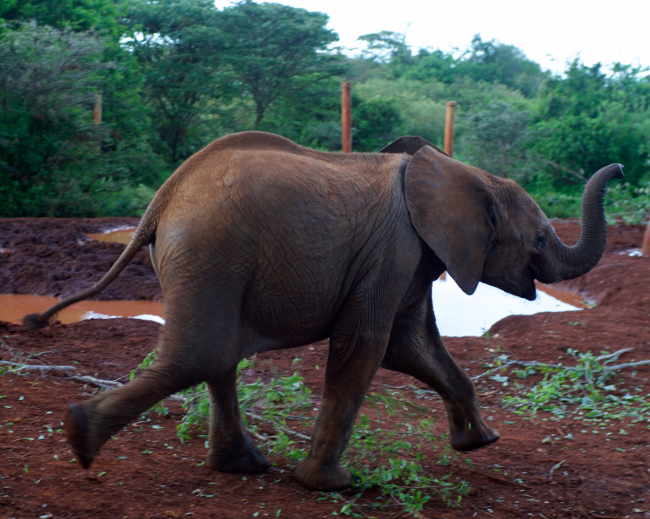Welcome to the Country of Living Beings
Posted on 05 June 2016
I would like to show my respect and Acknowledge the Traditional Custodians of the Land, of Elders past and present, on which this meeting takes place: the Wurundjeri people of the Kulinn Nation, Macropus rufus of the Kangaroo Nation, Eubalaena australis of the Whale Nation, and many other living beings who have called this part of the world home and have lived here for thousands of years or more.
It is World Environment Day and I’ve just come from an upsetting conversation with a fellow formerly from South Africa. I mentioned that I was doing a musical about elephants. He immediately asked me what I thought of South Africa selling ivory in order to fund their national parks. I said I was against it and I was against the culls.
The series of rationalisations he gave for killing elephants deeply upset me, but this wasn’t the first time I have heard them. I will have to write more on this subject. When things became particularly dark for me was when he was telling me they had to kill the elephants in order to make more farm land and the only way to do it was to round up families and slaughter them all at once.
These creatures are not merely intelligent, they are self aware, and deeply empathetic. This is a nightmare for them.
Daphne Sheldrick, founder of the David Sheldrick Animal Trust, speaks of the South African use of scholine on the elephants during culls. It is an immobilising drug which makes it possible for clean meat to be retrieved from the elephants. However, the victims of this drug are unable to move and these intelligent feeling creatures must watch their family members being butchered one by one. Imagine being a paralysed mother having to hear your panic-stricken baby crying for help, then watching him or her being killed and you are unable to move.
For centuries we have been telling ourselves that somehow we are separate from animals, that animals do not feel as we feel, and that it is acceptable to use them as we wish, even when that brings great suffering. Science has called it anthropomorphisation when we recognise our emotional similarities, and has actively shamed its own members when they felt empathy. Thomas Huxley was particularly guilty of starting this trend in the nineteenth century.
Dale Peterson in The Moral Lives of Animals writes, “The common habit of creating one thought island for people, the island of who and whom, and a second island, that of it and that, to contain that vast world made up of all animals and all things, suggests an astounding conceptual divide that simply fails to reflect reality. The reality is this: We are far, far more closely related to any animal than we are to any object. And to mammals…we are a good deal more closely related than we ordinarily admit.”
What is telling is when a being is defined as an animal, rather than a human.
Slavery was justified because the peoples of Africa were not seen as human. The slaughter and taking of land from the American Indian peoples were justified because they were seen as not human. A similar slaughter and taking of land from Australia’s Aboriginal peoples were also justified because they were seen as a dying race. The poor treatment of women was justified since they were considered sub-human. Horrific experiments were justified in the name of science and perpetrated on Jewish peoples, people with intellectual disabilities, and more during World War II because they too were stripped of their humanity.
Right here, right now I will say that elephants are people. They may not be human, but they are people. They feel shame, grief, joy, and compassion like we do. They care for one another and at times will show care toward other animals, including humans. They use tools, remember critical information, and make plans. When we take their land because we are too greedy to share among ourselves, and therefore need to grab for more, we are repeating what was done to the Wurundjeri, the Cherokee, the Haratin, and more. This land belonged to the elephants before we took it. They have rights in that land. “Culling” them because they are trying to return to their homes is monstrous. More than that, given the precariousness of their existence, it’s genocide.
The Non Human Rights Project which seeks to protect the rights and liberties of all animals states that, “In Western law, every nonhuman animal has always been regarded as a legal ‘thing’. We can buy, sell, eat, hunt, ride, trap, vivisect, and kill them almost at whim. The reason is that legal things don’t exist in law for their own sakes. They exist for the sakes of legal ‘persons,’ which we humans are. ‘Things’ are invisible to civil judges. They possess no legal rights and no hope of having them…The common law transformation of a nonhuman animal from ‘legal thing’ to ‘legal person’ is a primary objective of the Nonhuman Rights Project.”
In Australia many people seek to acknowledge the injustices done to the original peoples of this country by starting meetings with the “Welcome to Country.” This way we keep in immediate memory the understanding that we are living on stolen land and that these peoples are deserving of our respect and fair treatment. The statement is simple and powerful. I believe everyone everywhere should make a similar statement that also acknowledges the non-human persons from whom we have taken land as well.
Peace and kindness,
Katherine
Responses are closed for this post.

